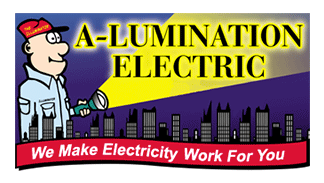SCHEDULE SERVICES
X
How You Can Ensure Your Home Passes an Electrical Inspection
How You Can Ensure Your Home Passes an Electrical Inspection
January 9, 2023
If you’re selling your home, one of the conditions of sale is passing an electrical inspection. Electrical inspections are necessary because they ensure that your home meets safety standards and that any potential problems are caught early on. Passing an electrical inspection can be daunting, but with a few simple steps, you and your family can avoid any issues when it comes time to sell or refinance your home.
Why Do You Need a Home Electrical Inspection?
Keeping your home and its electrical systems safe is necessary for the well-being of your home and its occupants. Home electrical inspections are essential to home ownership as they help to protect your home against potential hazards and issues. Not only is it necessary for your safety that home electrical inspections are completed regularly, but it’s also vital to comply with legal obligations regarding your electricity. Regular home electrical inspections ensure that everyone in your home is safe from potential harm, and you won’t be held liable if an issue arises.
What Happens in a Home Electrical Inspection?
Electrical inspections for homes are crucial for safety. An electrical safety inspection of your home is essential in keeping you and your family safe. During the inspection, an authorized electrical inspector will visit your home and conduct a detailed review of all electrical wiring, connections, and appliances. This ensures everything meets the standards set out by the National Electrical Code (NEC), which many US states have adopted. The NEC is part of a more extensive series of Fire Codes published by the National Fire Protection Association.
Two visits from your electrical inspector are required. The first inspection, known as the rough-in inspection, allows the inspector to check that all wiring from the service panel to fixtures and appliances has been completed correctly. This is done before insulation is added. The second inspection, referred to as the final inspection, takes place when the home is finished with all walls closed in, painting complete, and floors installed. This ensures all circuits function correctly, light fittings are securely attached and connected, and any other home electrical elements have met local building codes.
They will review your home’s electrical system carefully at each stage of construction or renovation before giving it a pass or fail based on their findings. Then they will recommend any repairs necessary to bring you up to code. How long this process would take depends significantly on the size of your home and any other buildings existing on your property. Home electrical inspections usually take around 2-4 hours for an average house; however, some larger homes may require more time.
How Often Should You Have a Home Electrical Inspection?
It is crucial to call an electrician or home inspector for a home electrical safety inspection to maintain the safety and function of your home. While there’s no exact requirement for the frequency at which someone should perform home electrical inspections, it is recommended by experts that you carry one out at least annually or if any significant changes have been made, such as if you have recently renovated, installed a new appliance, are purchasing a home, etc. Taking the proper steps to protect your home from electrical issues can help you avoid potential disasters and improve the performance of your home’s functions and save you money in the long run.
Essential Items in An Electrical Inspection
A home electrical inspection is conducted to assess the safety and function of the home’s electrical system. This inspection includes an assessment of proper circuits, GFCI and AFCI circuit protection, electrical boxes and box heights, cables and wires, cable anchoring, wire labeling, and surge protection. All these components work together to ensure a home’s safety and provide power to homes for everyday items such as lights and appliances. Homeowners must know the importance of home electrical inspections to keep their homes safe from potential danger or severe damage down the road.
What Should You Do If Your Home Has a Violation and Will Not Pass the Electrical Inspection?
When passing an electrical inspection, safety should always come first. That’s why, if you realize your home may have a violation that will prevent it from passing the inspection, you should take immediate action.
Every home must adhere to specific safety standards, such as installing GFCI circuits and AFCI circuit breakers. Additionally, you should pay special attention to things like light switches, extension cords, smoke detectors, and all other electrical appliances. Even something as simple as the electrical panel needs to be up to date for your home to pass the inspection.
When it comes to home electrical inspections, you should always prioritize safety above all else; if you notice anything that could violate the requirements of a home electrical inspection, address the issue immediately so that your home has a greater chance of passing its inspection.
Call A-Lumination Electric for Your Home Electrical Inspections in Orlando, FL
If you’re looking for a skilled and reliable local electrician in Orlando, FL, look no further than A-Lumination Electric! We specialize in home electrical inspections—ensuring that your home’s wiring meets current safety regulations and performs optimally. Our local electricians are highly trained and experienced with surge protection, electrical repair, rewiring, and any upgrades needed. Call us at 407-208-1412 or contact us today to learn more about how we can help ensure your home is up to code!









